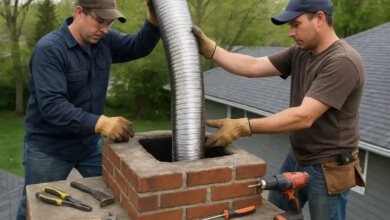The Complete Guide to Medical Waste Disposal Virginia Facilities Need to Stay Compliant
Medical Waste Disposal in Virginia

Medical waste is a byproduct of healthcare operations and includes a wide range of potentially harmful materials. Facilities for medical waste disposal in Virginia must recognize what constitutes medical waste to manage it safely and legally. Common types include sharps (like needles and scalpels), pathological waste (such as human tissues), pharmaceutical waste, and general infectious materials. Knowing how to categorize this waste correctly is the first step in creating a safe and compliant disposal plan.
Improper classification can lead to health risks for workers and the community, not to mention hefty fines from regulatory agencies. That’s why accurate identification and sorting of medical waste is crucial from the moment it’s generated.
State and Federal Regulations for Waste Disposal
Virginia Department of Environmental Quality (DEQ) Guidelines
In Virginia, the Department of Environmental Quality plays a key role in medical waste oversight. Facilities must comply with the DEQ’s requirements for packaging, labeling, storing, and transporting regulated medical waste. The state mandates that waste must be stored in leak-proof, puncture-resistant containers and properly labeled to avoid contamination or misuse.
Federal Oversight by OSHA and EPA
The Occupational Safety and Health Administration (OSHA) and Environmental Protection Agency (EPA) also regulate aspects of medical waste. OSHA focuses on employee safety during handling and disposal, requiring training programs and personal protective equipment (PPE). The EPA is involved in overseeing the disposal of hazardous pharmaceuticals and managing emissions from incinerators.
Best Practices for Handling and Storing Medical Waste
Internal Waste Segregation
Effective medical waste management begins with internal protocols for segregation. Facilities should place clearly marked bins in all treatment areas and educate staff on which waste goes where. Color-coded bins can help simplify this process and reduce errors. Sharps containers should be strategically placed and never overfilled to prevent needlestick injuries.
Safe Storage Until Pickup
Once medical waste is collected, it must be stored securely until it is picked up by a certified waste hauler. Storage areas must be inaccessible to the public and should have proper ventilation and temperature control to prevent bacterial growth. Virginia regulations specify maximum holding times, especially for infectious waste, to avoid health hazards.
Choosing a Certified Medical Waste Disposal Company
What to Look For in a Disposal Partner
Not all waste haulers are created equal. Virginia healthcare facilities should work only with companies that are fully licensed and insured to handle medical waste. Ask for documentation, including permits and certifications. A good provider should offer flexible pickup schedules, sealed transport containers, and a clear chain of custody for your records.
Importance of Compliance and Documentation
Working with a certified disposal partner also ensures compliance. These companies often provide manifests or logs for each pickup, which must be maintained in case of audits. Some even offer compliance training and help you stay current with evolving local and federal laws.
Environmental Considerations in Medical Waste Disposal
Waste Minimization Strategies
While proper disposal is essential, minimizing the amount of waste generated is also a smart and sustainable goal. Virginia facilities can adopt policies that reduce single-use items, increase recycling of non-hazardous materials, and implement digital recordkeeping to cut down on paper waste.
Eco-Friendly Disposal Options
Some disposal companies now offer environmentally conscious solutions, including autoclaving and chemical treatment methods instead of incineration. These reduce harmful emissions and help your facility meet its environmental responsibility goals while staying compliant with all regulations.
Staff Training and Ongoing Compliance
Building a Culture of Safety
No disposal strategy is complete without properly trained staff. From janitorial crews to clinical teams, everyone needs to understand how to identify, separate, and handle medical waste. Regular training programs help reinforce procedures and prevent costly mistakes.
Staying Ahead of Regulatory Changes
Virginia’s regulatory landscape is always evolving. Facilities should designate a compliance officer or partner with a consulting firm to stay informed about policy changes. Subscribing to alerts from the DEQ or attending industry workshops can also help maintain full compliance year-round.
Conclusion
Medical waste management and disposal is a critical responsibility for any healthcare facility, especially those operating in Virginia where state and federal regulations are both strict and detailed. From identifying types of waste to partnering with certified disposal companies and implementing thorough staff training, each step must be executed with precision. Staying compliant is not only about avoiding penalties—it’s about protecting healthcare workers, patients, and the environment. By understanding the full scope of requirements and adopting best practices, your facility can maintain safe operations and uphold the highest standards of public health and safety.




